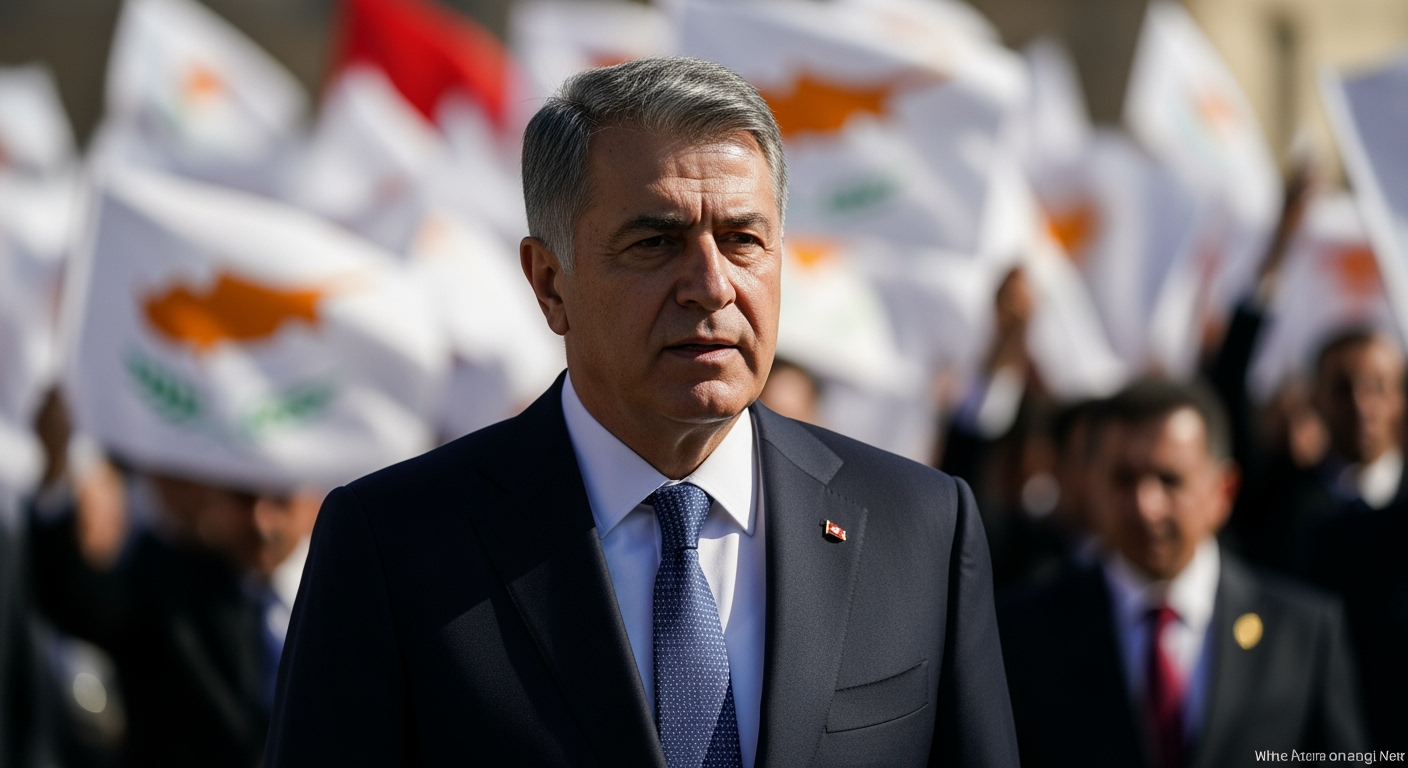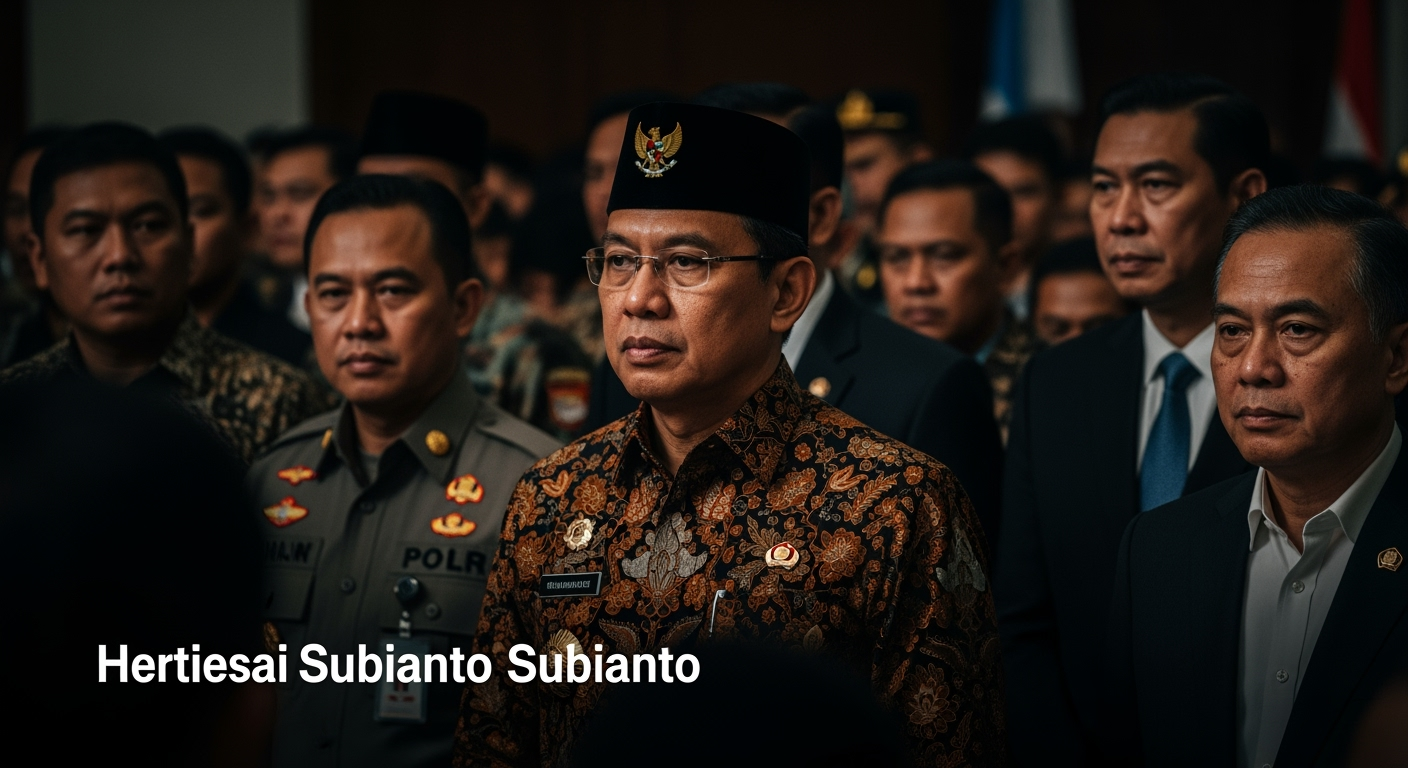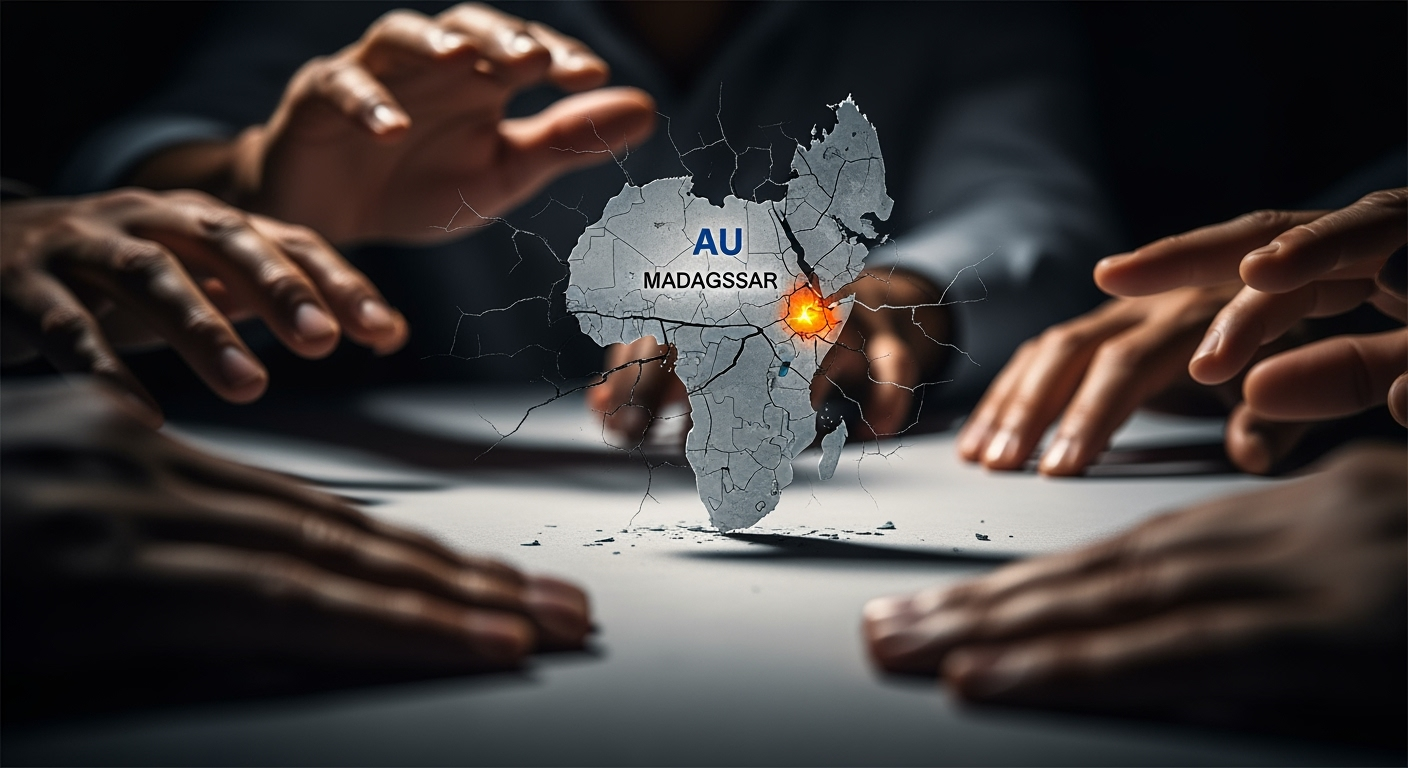Related Articles

Turkish Cypriots Elect Erhürman in Landslide, Sending Complex Signals to Ankara

China Navigates Critical Economic Crossroads with Ambitious New Five-Year Plan





ADDIS ABABA, ETHIOPIA – The African Union (AU) stands as a bulwark against unconstitutional changes of government on the continent, armed with a robust normative framework designed to promote democracy and stability. Yet, the persistent specter of military coups, vividly illustrated by Madagascar's turbulent political history and recent events, underscores the complex challenges the continental body faces in transforming its principles into consistent, decisive action. The AU's firm stance against power grabs, enshrined in foundational documents, often clashes with the intricate realities on the ground, leaving its efficacy in preventing such upheavals a subject of ongoing scrutiny.
At its core, the African Union is committed to democratic principles and the rejection of unconstitutional changes of government (UCG). This commitment dates back to the Organization of African Unity (OAU), the AU's predecessor, which adopted the Lomé Declaration in 2000. This landmark declaration was the first instrument to define UCG, identifying scenarios such as military coups against democratically elected governments, intervention by mercenaries, seizure of power by armed dissident groups, and the refusal of an incumbent government to relinquish power after free and fair elections. The Lomé Declaration established a roadmap for responding to UCG, including public condemnation, denial of recognition, and suspension from the organization.
The AU's Constitutive Act, adopted in 2000, further solidified this stance, stating explicitly that "Governments which shall come to power through unconstitutional means shall not be allowed to participate in the activities of the Union". In 2003, the Peace and Security Council (PSC) was established to deal specifically with UCG cases, equipped with the authority to "institute sanctions". A significant stride was also made with the 2007 African Charter on Democracy, Elections and Governance (ACDEG), which came into force in 2012 after ratification by 15 states and by 30 states by 2017. The ACDEG prohibits, condemns, and rejects UCG, and notably introduces sanctions for perpetrators, including banning them from participating in elections to restore constitutional order and from holding key government posts. It also empowers the AU Assembly to impose sanctions on states supporting UCG in other member states. These instruments collectively form a strong normative framework designed to deter coups and promote democratic governance.
The 2009 political crisis in Madagascar presented a critical test for the AU's anti-coup framework. In March 2009, then-President Marc Ravalomanana was forced from office by military pressure, which then handed power to opposition leader Andry Rajoelina, then the mayor of Antananarivo. The AU swiftly condemned the change, interpreting it as a coup, and immediately suspended Madagascar from all its bodies and organs. The AU Peace and Security Council declared the removal of Ravalomanana illegal and an "unconstitutional change of government".
The AU's response was robust, asserting that the constitutional path required the president to hand power to the speaker of parliament, with elections to be held within two months. Rajoelina, however, promised a ballot within two years. The AU warned that if constitutional order was not restored within six months, further sanctions could be imposed. Regional bodies like the Southern African Development Community (SADC), of which Madagascar is a member, also refused to recognize Rajoelina, condemning the circumstances that led to the ousting of a democratically elected president. The international community largely echoed these condemnations, with the U.S. describing it as an "undemocratic transfer of power" and the EU labeling it a "coup d'etat".
Despite the swift and unified condemnation, Rajoelina was sworn in as leader of a transitional government. The crisis led to a significant economic downturn for Madagascar, with financial support and foreign investments ceasing. The AU, alongside SADC, was designated to supervise Madagascar's political reinstatement and mediated between the country's four main factions. These mediation efforts were arduous but eventually led to a new constitution in 2010 and a SADC-backed transition roadmap in 2011, which culminated in successful elections years later. While the AU's immediate suspension and diplomatic pressure highlighted its normative commitment, the prolonged transition and initial defiance by the new leadership exposed the challenges in compelling compliance, especially when internal political dynamics are entrenched.
Despite the AU's clear anti-coup doctrine, Africa has experienced a troubling resurgence of unconstitutional changes of government, particularly since 2020, with nine instances recorded. Statistical data indicates that Africa accounts for the largest number of coups globally, with 214 attempted or successful coups since 1950, 106 of which were successful. This trend signals a deepening crisis for the continent's peace and security architecture.
Several factors contribute to the AU's ongoing struggle. One significant challenge is the inconsistent application of its own norms and sanctions. While the AU often acts decisively against direct military overthrows, its response has been less consistent when incumbents manipulate constitutions to extend their rule or refuse to relinquish power after elections. This perceived "incumbent bias" can undermine the AU's credibility and deterring effect, as it may be seen as tolerating certain forms of unconstitutional power retention.
Furthermore, the AU faces practical limitations. Its peace and security organs often grapple with a lack of logistics, expertise, and financial resources, hindering their capacity to prevent coups effectively. Political will among member states also varies, with some resisting AU intervention by invoking national sovereignty. This reluctance can prevent the AU from collecting firsthand data or engaging directly with transition authorities, as seen in cases where leaders dismiss warnings or attempts at mediation. The coordination between the AU and regional economic communities (RECs) also presents challenges, with disjointed responses sometimes emerging. The failure to consistently apply the Lomé Declaration in cases like Zimbabwe (2017), Sudan (2019), and Chad (2022) has further eroded its deterrence credibility.
In response to the recent wave of coups, the AU has been engaged in internal discussions about strengthening its mechanisms. In May 2023, AU Heads of State and Government reiterated a zero-tolerance stance against UCG and called for collective action to deepen democracy and collective security. There is an ongoing recognition that addressing the structural causes of coups, such as poor governance, corruption, economic disparity, and the inability of states to provide basic services, is paramount.
The AU is also exploring ways to be more proactive, with an emphasis on early warning systems and preventive diplomacy. The African Charter on Democracy, Elections and Governance (ACDEG) serves as a critical yardstick for assessing member states' commitment to democratic governance. Efforts are underway to improve the consistency and efficacy of the AU's decisions, including exploring mechanisms to ban coup plotters from holding office and making it harder for incumbents to amend constitutions undemocratically. However, the continued ability of coup leaders to entrench themselves in power and even run for elections, as observed in some recent instances, directly challenges the spirit of the ACDEG and the AU's anti-coup norms.
The African Union has undeniably established a strong normative framework to prevent military coups and uphold constitutional order. Its immediate condemnation and suspension of countries like Madagascar in 2009 demonstrated a clear principled stance. However, the recurring phenomenon of coups across the continent, particularly in recent years, highlights the persistent gap between principled declarations and effective enforcement. The AU's ability to prevent coups, like Madagascar's, remains contingent on its capacity to overcome internal inconsistencies, address resource limitations, navigate member states' sovereignty concerns, and foster unwavering political will among its leadership. While the continent has made strides in institutionalizing democratic ideals, the ongoing struggle underscores that the journey towards fully consolidated democracy, free from the threat of unconstitutional power changes, is a continuous and evolving process.